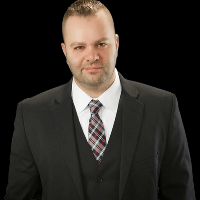Chase Misdemeanor Lawyer, Maryland
Sponsored Law Firm
-
 x
x

Click For More Info:
-
Law Offices of Charles L. Waechter
1435 Sulphur Spring Road 1st Floor Baltimore, MD 21227 » view mapMaryland Criminal Law The Premiere Criminal Defense Firm
Child Pornography and Criminal Attorney Serving Clients throughout Maryland. Contact today for swift and professional council, your future is on the line.
800-654-7381  Charles Waechter Baltimore, MD
Charles Waechter Baltimore, MDAttorney At Law - MD, 1985
University of Baltimore SOL, J.D. - 1985
 Video Center
Video CenterClick here for our firms introductory video and video center.
 Contact UsEmail or Call 24/7
Contact UsEmail or Call 24/7Call today for your initial evaluation
Elan Benjamin Rafael
Misdemeanor, Felony, Criminal, Accident & Injury
Status: In Good Standing Licensed: 20 Years
Donald H Sheffy
Landlord-Tenant, Trusts, Criminal, Non-profit, Misdemeanor
Status: In Good Standing Licensed: 50 Years
Phillip L Potts
Traffic, Estate, Misdemeanor, Medical Malpractice, Criminal
Status: In Good Standing Licensed: 50 Years
Raymond Nicholas
Accident & Injury, Securities, Misdemeanor, Business
Status: In Good Standing Licensed: 8 Years
FREE CONSULTATION
CONTACTEugene Peter Melcavage
Misdemeanor, Administrative Law, Criminal
Status: In Good Standing Licensed: 27 Years


 Charles Waechter Baltimore, MD
Charles Waechter Baltimore, MD Video Center
Video Center Contact UsEmail or Call 24/7
Contact UsEmail or Call 24/7

